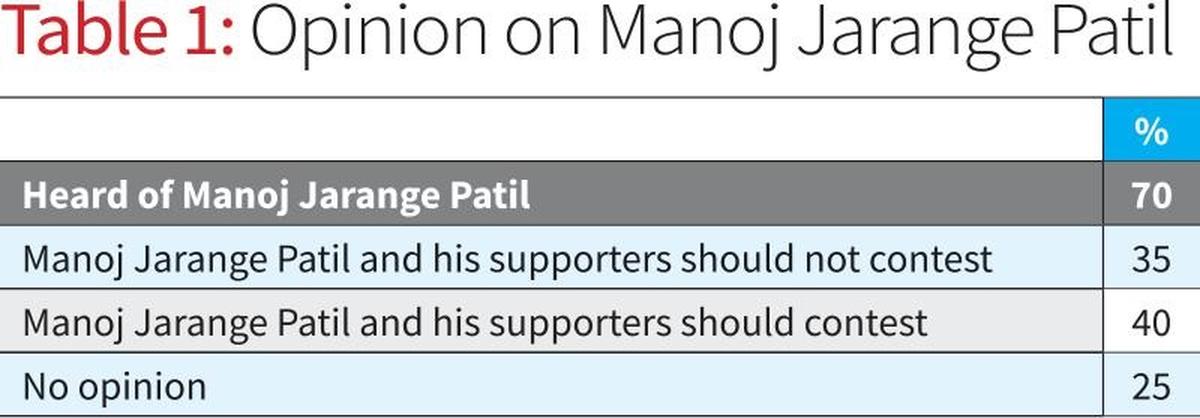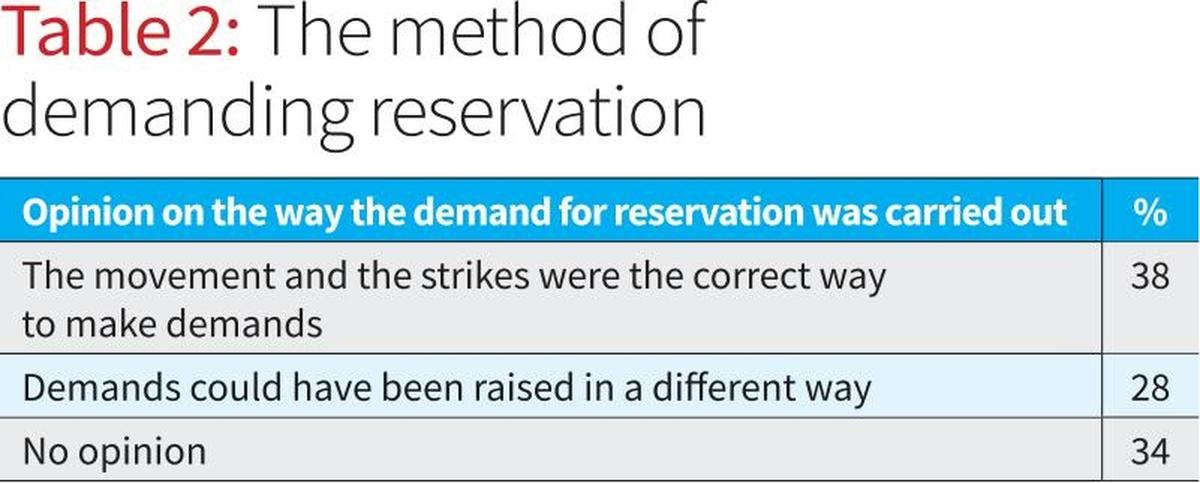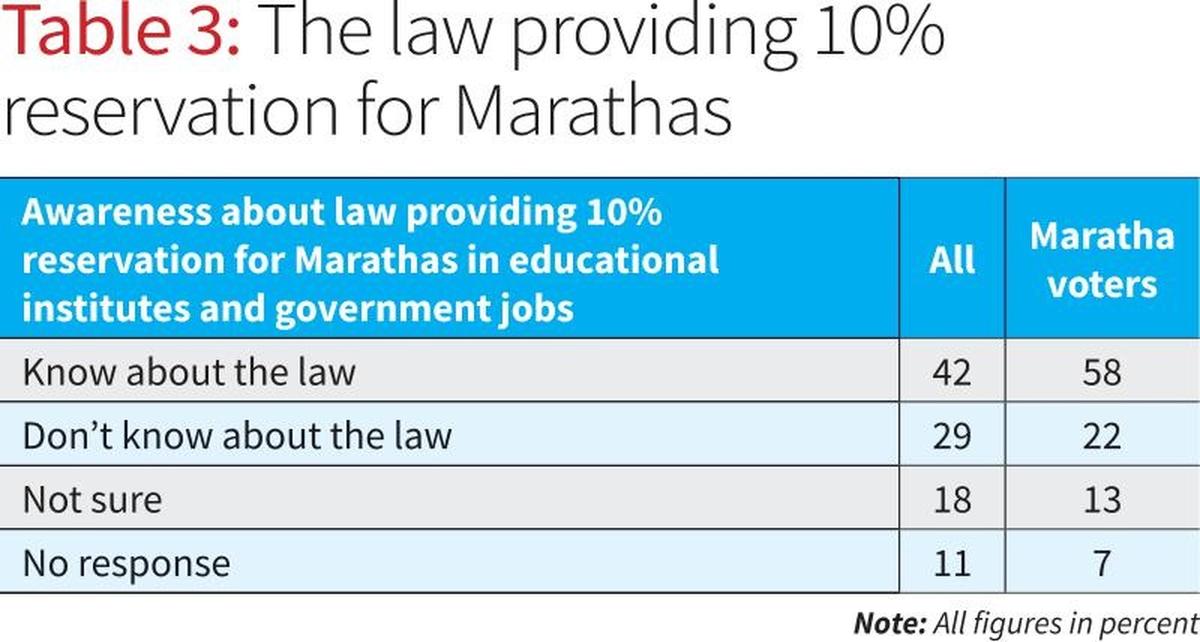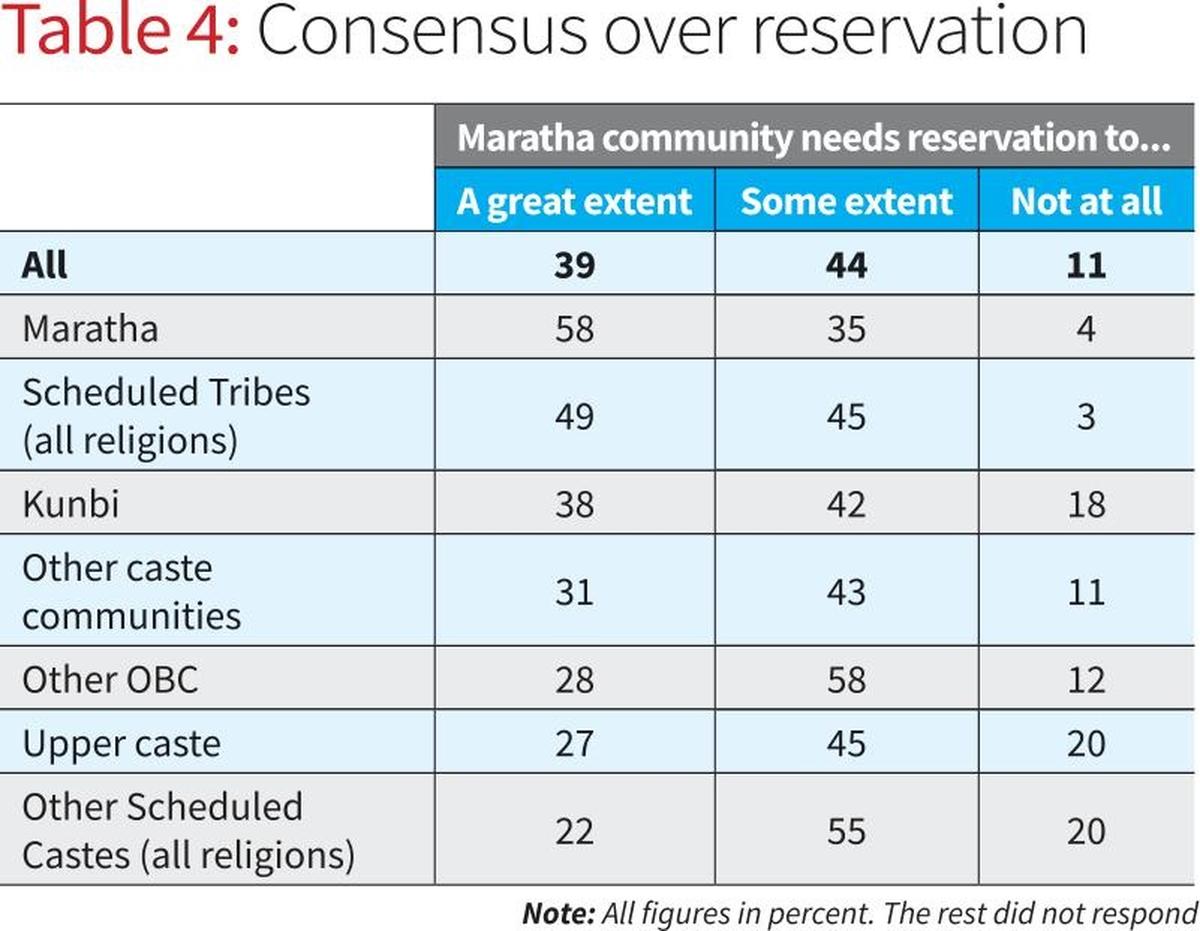Maratha reservation activist Manoj Jarange Patil during a rally in Pune.
| Photo Credit: PTI
Since the agitation for Maratha reservation under the leadership of Manoj Jarange Patil, the discussions in the State have revolved around the role that this agitation would play in the Assembly elections. In this context, the pre-poll survey attempted to capture voters’ perception on the demand of reservation for the Marathas, the agitation to achieve it and social acceptability of this demand.
Maharashtra Assembly elections: Full coverage
An influential leader
When asked whether Mr. Patil and his followers should contest the election, four out of 10 respondents said yes (Table 1). For a long time, Mr. Patil and his supporters have been threatening the existing political players with the launch of their own political outfit to contest the election. While he has not reiterated this since the announcement of the election schedule, it nonetheless shows the potency of independent Maratha candidates in the election, who have the potential to garner considerable votes and damage the established political parties in the fray.

Mr. Patil has been continuously targeting BJP leader and Deputy Chief Minister Devendra Fadnavis during his public meetings and interviews. On the question of the correctness of the mode of protests for demanding reservation, almost two-fifths of the respondents believed that movement and strikes were the correct way of making demands. Nearly one-third of the respondents had no opinion on the mode of protest. Less than three of every 10 respondents thought that the demand could have been pursued through different means (Table 2).

Before the Lok Sabha elections, the State government had passed a new law to provide 10% reservation to those eligible from the Maratha community in educational institutions and government jobs. When respondents were asked whether they knew about such a law being made by the State government, only four of 10 said they knew about it. Among the respondents from the Maratha community, three fifths (58%) knew about such a law, while two of every 10 did not know about it (Table 3).

On the question of whether the Maratha community needs reservation, an overwhelming share of respondents supported the demand to some extent. Only one of every 10 respondents did not support it. Support for reservation was higher among Maratha voters, with nearly three in five strongly favouring reservation for their community and over one-third supporting it to some extent (Table 4).

The missing battle
The demand received equally strong support from Scheduled Tribe respondents and those identifying themselves as Kunbi. Among respondents from Other Backward Classes, one of every 10 opposed any kind of reservation to Marathas, while one-fifths of respondents from the Scheduled Castes and upper castes opposed it. Overall, the numbers opposing reservation to Maratha community are not considerably high. One of the perceived scenarios in the Maharashtra Assembly elections has been the pitched battle between the Marathas and the OBCs. This does not seem to be happening across the State, at least for now, on the issue of reservation to Marathas.
Published – October 21, 2024 03:20 am IST